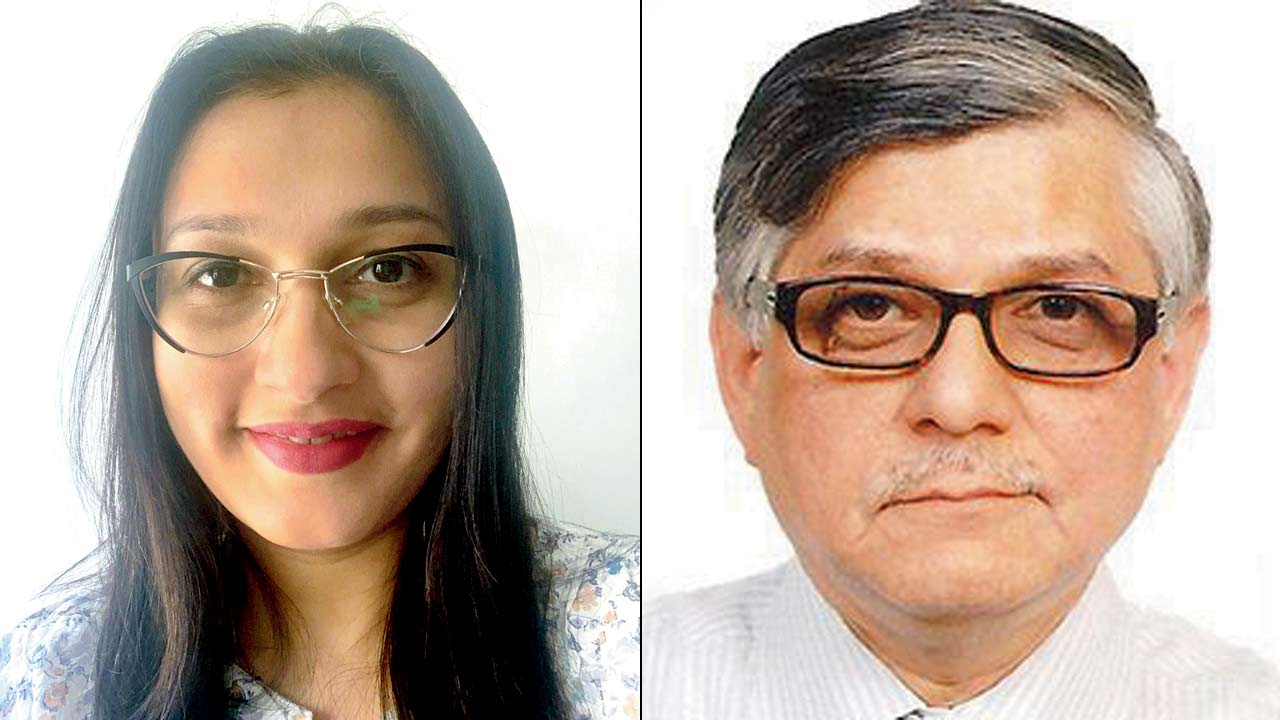Hollwyood star Bruce Willis has given up acting because of it. But experts say that Aphasia, commonly caused by a stroke and often known as incurable, can be improved with prolonged speech therapy

Bruce Willis and wife Emma Heming Willis at the 57th New York Film Festival in 2019. Pic/Getty Images
Can you be an actor if you can’t remember your lines? Hollwyood actress Demi Moore, once married to Bruce Willis, penned a note on Instagram last week announcing his retirement from acting. Something he has done for 40-odd years. Fronting cult classics like Die Hard, Pulp Fiction and The Fifth Element, Willis, 67, was losing control on his cognitive abilities, a sign of Aphasia. Described as a condition that makes it hard to communicate, it affects a person’s speech, ability to write and understand spoken and written word, and typically follows a stroke or head injury.
ADVERTISEMENT
It had to take an actor of his stature to start a conversation about the condition that has stayed out of popular discourse. Ironically, it’s anything but rare. According to a study by Australian Aphasia Rehabilitation Pathway, 15 million stroke episodes occur worldwide every year, and up to 38 per cent of survivors end up struggling with Aphasia. The condition is more prevalent than Parkinson’s, ALS (Amyotrophic Lateral Sclerosis), Cerebral Palsy, and Muscular Dystrophy. A research study published by NCBI (National Centre for Biotechnology Information) in 2019 estimated that India has around 20 lakh cases of Aphasia, adding that prolonged speech therapy had proven to be beneficial to patients.

Dr Mansi Jagtap and Dr Arun Shah
Dr Mansi Jagtap, a speech therapist who practices in Mumbai, tells the story of one of her clients, who she has been working with for five months. “The 45-year-old had suffered a stroke in the left hemisphere of the brain which affected his speech centre. He was later diagnosed with Broca’s Aphasia as well as Dysphagia, which made it difficult for him to swallow food. I had to adopt a holistic approach for this patient since I had to address his swallowing problem as well. He was able to understand and comprehend what was being said, but was not able to speak, repeat what he heard, or name anything correctly,” said Dr Jagtap, adding, “During my assessment, I noticed that he could hum certain familiar tunes and was able to come up with a few words while he was humming. Since the tonality and tunes of the songs were intact, I approached him with the Melodic Intonation Therapy (MIT), which uses the right hemisphere of the brain to unlock the words.”
Dr Arun Shah, who is the Director of Neurosciences at Sir HN Reliance Foundation, decodes the condition when he says that a majority of our language functions are controlled by the left side of the brain. Any injury to this region can lead to Aphasia. “Patients often lose a hold over spoken language, they can’t comprehend what is being said nor can they form an elaborate sentence to communicate with others.” Although stroke is the main cause, Aphasia also follows a traumatic brain injury, complications during a brain surgery, tumours and infections such as meningitis or a progressive condition like Dementia.
There are different types of Aphasia, including Anomic Aphasia, Broca’s Aphasia and Wernicke’s Aphasia among others. The fact that the condition can affect a person regardless of age is also what makes the disease dangerous. Game of Thrones actress Emilia Clarke, known famously as Daenerys Targaryen, in 2019 penned a powerful essay that detailed the two aneurysms she suffered years earlier and the subsequent experience with Aphasia. The actress was left “muttering nonsense” and unable to recall her own name at just 25 years, and though she recovered, she founded a charity called SameYou that focuses on ending brain injury recovery inequality. Veteran actress Sharon Stone also suffered with it in 2001, at the height of her career, but managed it with therapy.
The patient Dr Jagtap has been working with has also been responding well to the sessions, and can now form a few sentences, and swallow food, not requiring the use of a feeding tube. “There are a few hindrances and he does take a little time, but he can form a few simple sentences, communicate basic needs and narrate his experiences. We are now working on expanding his utterances to a more complex level. The ordeal has been frustrating to the family since he has two children and his wife depended on him since he was the sole breadwinner,” she says, adding, “It is important that doctors also train the family to cope. In the case of a crisis or if a patient is having a meltdown, they are the first responders.”
 Subscribe today by clicking the link and stay updated with the latest news!" Click here!
Subscribe today by clicking the link and stay updated with the latest news!" Click here!







